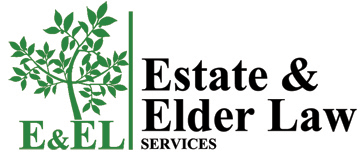ESTATE PLANNING, Part 3: Protection

This is part 3 of a three-part series of blogs on the basics of Estate Planning. Broadly speaking, the goal of the estate plan is to give you peace of mind and to preserve family harmony after you die. We can help in three ways:
1.Take steps now to make sure your wishes are understood and honored if you become incapacitated
2.Create a plan that will quickly and cheaply transfer your wealth when you die to the people you have decided should inherit it.
3.Protect your beneficiaries from themselves and outsiders.
In the last two blogs we talked about incapacity and planning. Today, we will talk about how to protect your loved ones from common mistakes.
Mistake #1: Thinking Children -- Minor and Adult -- Don’t Need Inheritance Protection
Adult children come with the same flaws as anyone else. As you plan to pass along your wealth to your children, it is important to acknowledge their strengths and weaknesses. Here are some things to keep in mind:
1.18-year-old adults often don’t manage sudden wealth very well, for that matter, most of us don’t.
2.Couples who are happy today, may divorce in the future. Don’t assume you know how well your child’s marriage is going.
3.One of your children will likely face creditor problems or legal problems.
4.A child who has a substance abuse or gambling problem might use an inheritance irresponsibly.
5.A child with special needs, needs special attention. The rules governing public benefits are complex.
There can be real consequences of simply dividing everything up evenly when you die. A well-crafted trust can provide your children access to some of their inheritance, but hold back some until a certain age or demonstration of maturity or resolution of gambling or addiction. A trust can ensure your grandchildren receive their inheritance, even if their parents divorce. Property in a trust can be protected from bankruptcy, personal injury claims, the IRS and creditors. And, trusts for people with special-needs can help your child have a comfortable life after you die.
Mistake #2: Failure to Consider Blended Family Issues
We see many potential clients who are dealing with unintended problems that result from remarriage. Here are some examples.
1.Your second spouse leaves your money to his/her children.
2.Your second spouse is a spendthrift and effectively disinherits your children by spending everything.
3.Your surviving spouse is victimized by a gold digger who decimates your estate – leaving nothing to your children.
Again, a well-crafted trust can make certain your assets go to your current spouse and children, instead of a new spouse or friend and his/her children. A trust can provide for the distribution of income and principal to your spouse while setting aside money for your children, regardless of whether your spouse remarries and has more children or step-children.
Mistake #3: Failing to Plan for Personal Property
Ironically, we see more family squabbles over trinkets than treasures. Children have sentimental attachments to items that may seem every-day and ordinary like Mom’s favorite Christmas decoration or Dad’s weird pipe. We recommend that decisions about these sentimental items be made together and a list of who gets what be written down in a personal property memo that is included with the Will or Trust. It may make sense to discuss this with family members.
Mistake #5: Joint Property with non-spouse or second spouse
When you add someone’s name to your property you lose control over it. You need permission to sell or mortgage it. If the joint owner is sued, a judgement may be lodged against the joint property. If the joint owner gets divorced, the ex-spouse may claim the property. If you die, the joint owner gets the property – regardless of your Will or wishes.
Example: Mother promises the dining room set to her daughter. Mother dies, Father remarries and holds everything jointly with his new wife. Father dies and Step-Mother gets everything. Step-Mother dies, leaving everything to her children and Mother’s dining room set goes to Step-Mother’s child– a person Mother never knew.
Mistake #6: Believing Estate Planning is a one-time event
Estate Planning is a life-long event because you change, your family changes and the laws change. It is always important to update, update, update.
Over more than three decades, we have helped thousands of Delawareans create Estate Plans which meet their personal needs. Let us help you, too.
